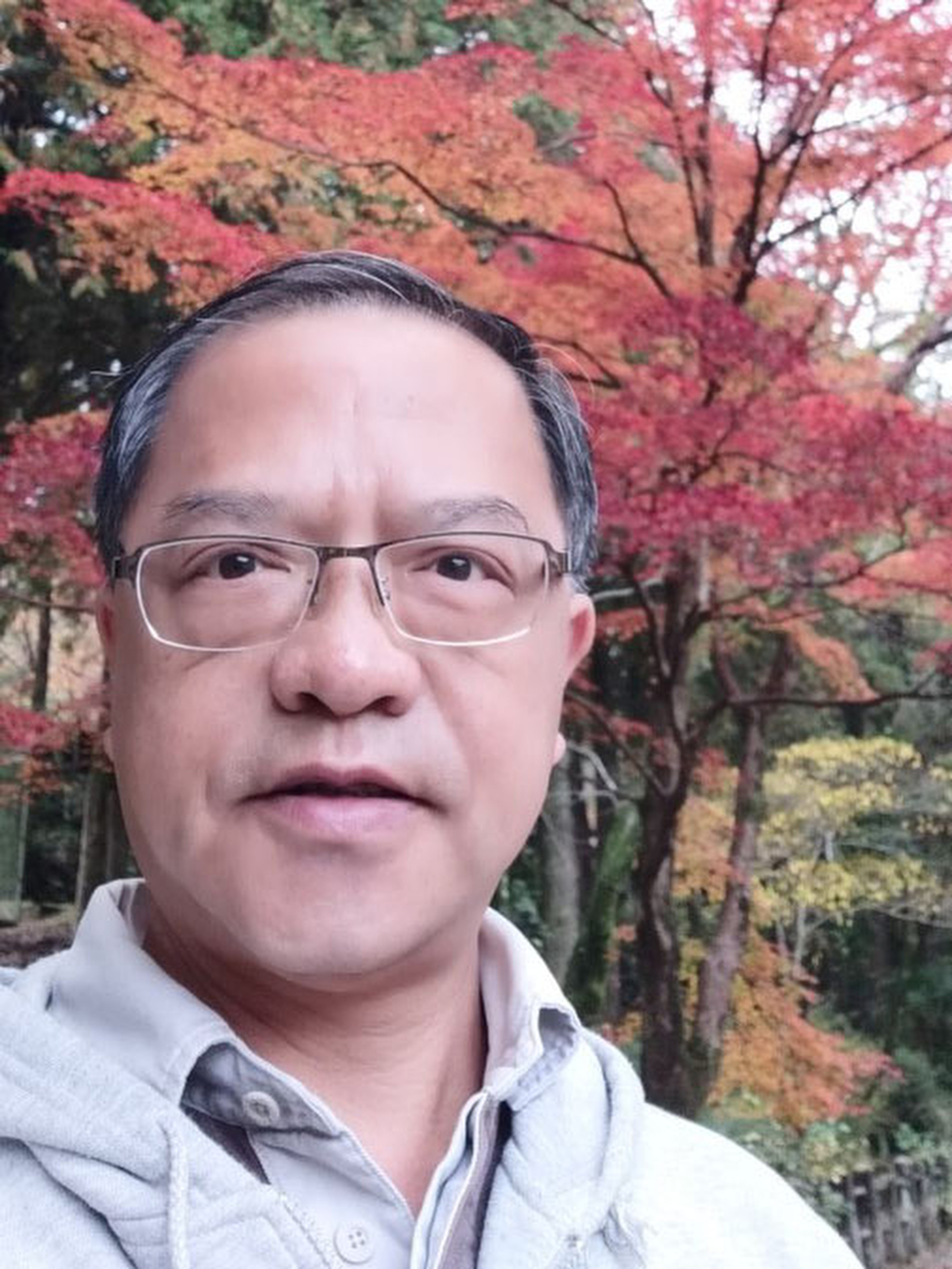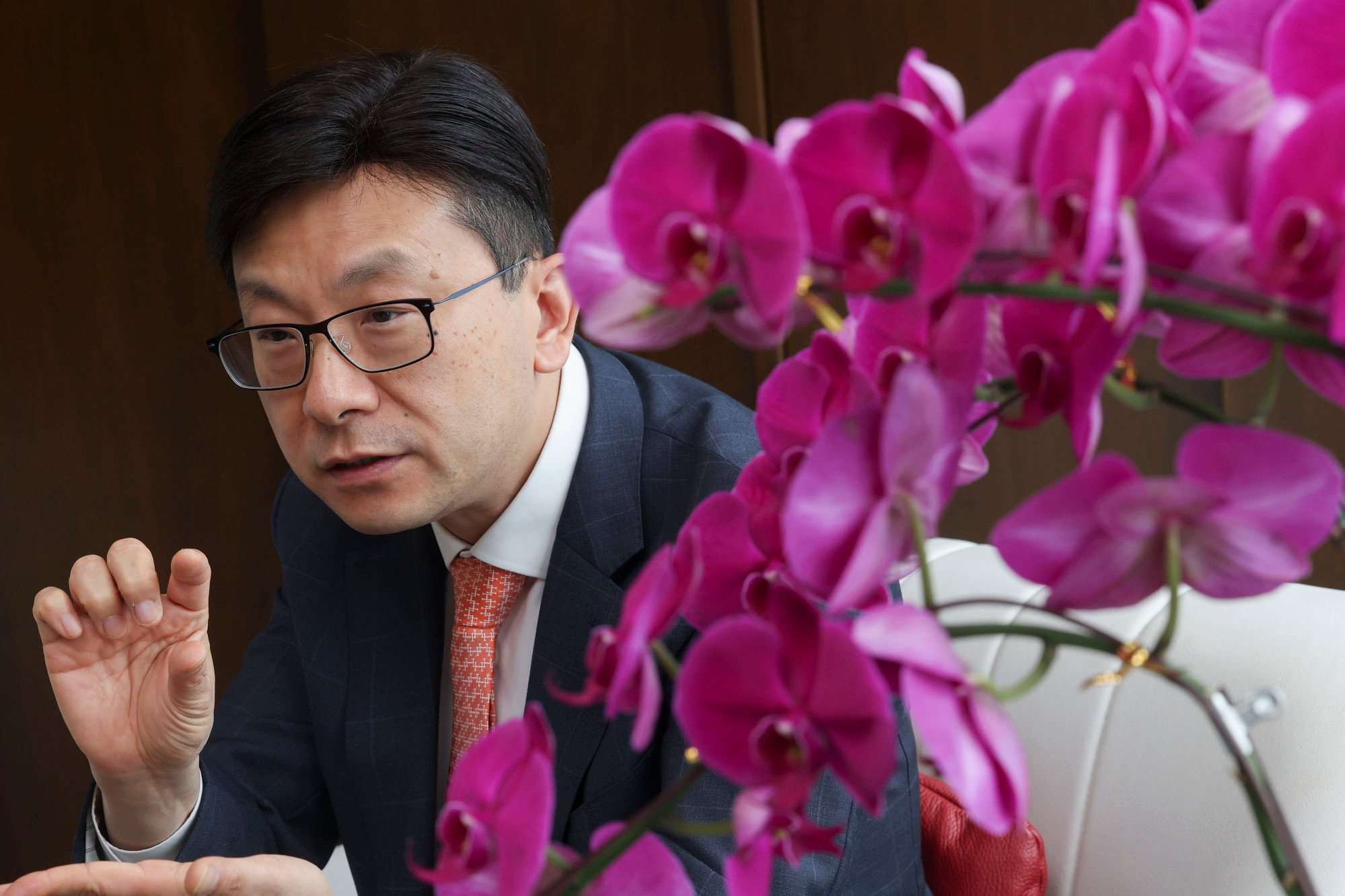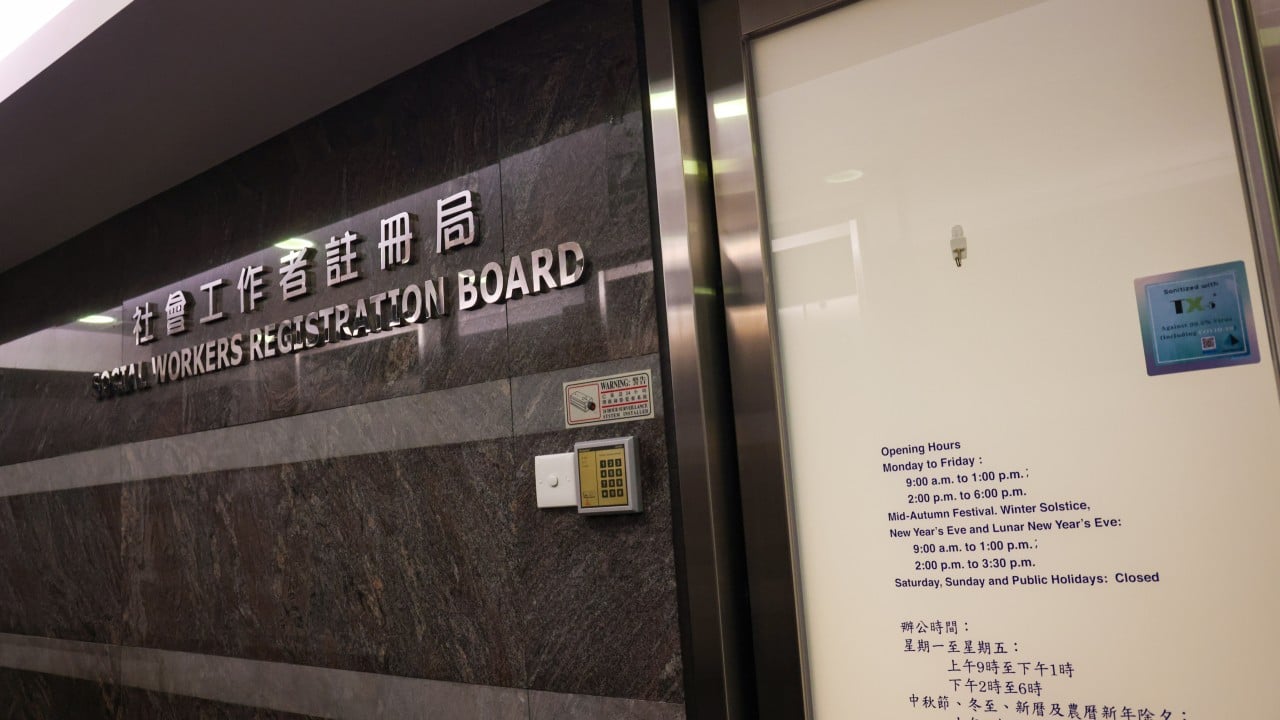Explainer | Will cut in number of elected members on Hong Kong’s social workers’ board damage autonomy?
Hong Kong’s social work watchdog is to get more government-appointed members on its board and be empowered to quickly deregister people convicted of national security offences under a bill passed by lawmakers on Wednesday.
The changes followed accusations from authorities that the Social Workers Registration Board had failed to take firm action to prevent people convicted of national security offences from registering to join the profession.
The government and its allies argued the changes would restore the industry’s professionalism and credibility, as members were seen by some to be sympathetic to the 2019 social unrest.
But critics warned that the move would undermine the profession’s autonomy.
Here is what you need to know about the amendments made to the Social Workers Registration Ordinance, the implications and why authorities are so keen to press ahead with the changes.
1. What are the amendments?
The Social Worker Registration Ordinance empowers the board, which oversees the city’s 27,000-plus social workers, to handle their registration, as well as disciplinary matters.
The amended legislation will expand the board from 15 members to 27, giving the government the upper hand, with the number of appointed members going from six to 17. The number of elected seats will remain at eight.
The board will also be given powers to quickly deregister social workers convicted of certain crimes.
It will be able to permanently disqualify those involved in serious offences such as endangerment of national security, ill-treatment of a child, rape or murder. No written representation will be allowed in such cases.
The city’s leader will appoint the board’s chairman and deputy chairman, a change from the previous practice where members of the body elected its leaders.
Board members will also be required to swear in before the city’s labour chief and pledge allegiance to the Hong Kong Basic Law and the special administrative region, rather than signing a written oath as happened under the earlier rules.
2. When do the changes take effect?
The amended ordinance will come into force on Friday after it is gazetted.
Seven of the eight elected members on the current board earlier quit after authorities proposed the changes, with the resignations seen as a protest against the changes.
Oscar Lai Man-lok, the sole remaining elected board member, earlier said he would attend the oath-taking ceremony on Friday for the new board members.
3. Why were the changes proposed?
Secretary for Labour and Welfare Chris Sun Yuk-han in May accused the board of failure to block national security offenders from becoming registered professionals in a statement posted to his bureau’s Facebook account.
Sun said some of the board’s decisions had deviated from amendments to the Social Worker Registration Ordinance introduced after Beijing imposed the national security law on Hong Kong in 2020.
The amendments, which came into force on July 22, 2022, prevented people convicted of offences that endangered national security from registration as social workers or from continuing to work in the profession.
Sun also highlighted the case of a social worker who was embroiled in a court case on rioting charges at the time, but was still appointed to a panel of reserve members for the board’s disciplinary committee.
He said the incident made clear the need for the body to improve its governance to better safeguard national security and protect the public interest.
Sun appeared to be making reference to the case of Jackie Chen Hung-sau.
The social worker, known for her work to monitor police action on the front lines during the 2019 protests and liaise between protesters and officers, was charged with rioting.
She was acquitted in 2020, but a court has ordered a retrial after an appeal by the prosecution against the ruling.
The government submitted the amendments to the legislature for scrutiny on May 22 and they were passed by the Legislative Council on Wednesday.

4. Why does the government want more control over social workers?
The profession, over the years, has been regarded as a stronghold of the now-dismantled opposition camp in Hong Kong.
The legislative seat representing the social welfare sector had been held by the bloc for decades, with the incumbent – Tik Chi-yuen – the only non-establishment member in the legislature, which now operates under Beijing’s “patriots-only” rule.
Social workers were one of the major groups that took to the streets in 2019 to oppose a now-shelved extradition bill, with several of them ending up behind bars for their roles in the months of protests.
Sun on Wednesday said the amended ordinance would provide a “better” and “more secure foundation” for the board’s operations.
He said the changes also meant the registration of social workers was back on the right track, as operations and decision-making were now in line with the public interest national security requirements.

5. How does the public see the amendments and what are the implications?
Lawmakers largely praised the move as “putting the sector back in order” and brushed aside concerns that it would damage the board’s autonomy and its professionalism.
But Mok Hing-luen, a retired senior lecturer in social work at City University, said the revamp was more of a “political decision”.
Mok co-conducted a survey which found that 95 per cent of the 3,138 people canvassed considered the amendments to be inappropriate.
He said social workers with criminal records, especially those convicted of endangering national security, would be most affected as they could be disqualified immediately without undergoing case-by-case reviews by the panel, the practice in the past.
“We do not know what the public thinks of this, but we as social workers believe humans are capable of changing and we do not reject the possibility of rehabilitation … and the new rule is not quite in line with this core value,” Mok added.
He said some may be discouraged from engaging in policy advocacy work and fighting for human rights because of a fear they might lose their licence.
Chen added she was concerned that the new board structure would not adequately represent the profession because of the reduced number of elected members.
“When they handle complaints or cases of professional misconduct, could they apply a standard that is widely agreed upon and recognised by the profession?” she asked.


